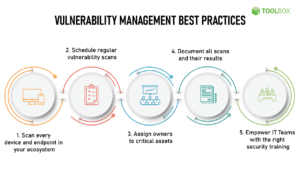Zero to Hero: How to Learn Cybersecurity Without a College Degree
Zero to Hero: How to Learn Cybersecurity Without a College Degree

Cybersecurity is one of the fastest-growing fields globally, with a projected shortage of 3.5 million professionals by 2025, according to Cybersecurity Ventures. For small and medium-sized businesses (SMEs) like those supported by America CyberSquad (ACS), this demand opens doors for self-taught individuals to break into the industry without needing a college degree.
As part of our Remote Staffing & Talent Outsourcing blog series, this guide will walk you through a practical, step-by-step approach to learning cybersecurity from scratch. Using free and affordable resources, you can go from zero to hero—and land a job in this high-paying field.
Why Learn Cybersecurity Without a Degree?
While a college degree is valuable, it’s not required to succeed in cybersecurity. The industry values skills, certifications, and hands-on experience more than formal education.
Benefits of Skipping the Degree:
- Cost Savings: Avoid $50,000–$100,000 in tuition debt.
- Speed: Acquire job-ready skills in 6–18 months instead of 4 years.
- Accessibility: Free and low-cost learning resources make the field inclusive.
- High Demand: Entry-level roles, like security analysts, earn $60,000–$80,000 annually (Glassdoor 2024), with no degree required.
This guide shows how to master cybersecurity via self-study, practical projects, and certifications, preparing you for roles like those offered through ACS outsourcing services.
Step 1: Understand the Cybersecurity Landscape
Before diving in, get familiar with core concepts and career paths.
Key Areas:
- Network Security: Protect networks from unauthorized access (firewalls, VPNs).
- Incident Response: Handle and mitigate cyberattacks (ransomware recovery).
- Penetration Testing: Simulate attacks to find vulnerabilities.
- Cloud Security: Secure platforms like AWS and Azure.
- Compliance: Adhere to laws like GDPR and HIPAA.
Entry-Level Roles:
- Security Operations Center (SOC) Analyst: Monitor threats and respond to alerts.
- IT Security Specialist: Implement security measures like patches and antivirus.
- Junior Penetration Tester: Test systems for weaknesses.
Resources:
- Free Courses: Cybrary (Intro to Cybersecurity), SANS Cyber Aces (networking basics).
- Blogs/Podcasts: Darknet Diaries, Krebs on Security.
- Communities: Reddit r/cybersecurity, Discord CyberSec.
Time Commitment: 1–2 weeks (10–20 hours) to explore and identify your interest area.
Step 2: Build a Foundation in IT and Networking
Cybersecurity builds on IT and networking fundamentals.
Key Skills:
- Operating Systems: Learn Linux (Ubuntu) and Windows system administration.
- Networking: Understand TCP/IP, DNS, firewalls, subnetting.
- Scripting: Basic Python or Bash for automation.
Free/Low-Cost Resources:
- Linux: OverTheWire Wargames, Linux Journey.
- Networking: Professor Messer’s Network+ videos, Cisco Packet Tracer.
- Scripting: Learn Python the Hard Way, Codecademy’s Python 3 course.
Practice:
- Set up a Linux virtual machine (VirtualBox).
- Simulate networks with Packet Tracer.
Time Commitment: 2–3 months (100–150 hours).
Step 3: Learn Core Cybersecurity Concepts
Dive into cybersecurity-specific skills.
Key Topics:
- Threats & Vulnerabilities (phishing, malware, SQL injection).
- Cryptography (encryption, hashing, SSL/TLS).
- Access Control (MFA, RBAC).
- Security Tools (Wireshark, Nmap, Metasploit).
Resources:
- Hands-on Labs: TryHackMe, Hack The Box Academy.
- Video Courses: OpenSecurityTraining.
- Frameworks: NIST Cybersecurity Framework PDF.
Practice:
- Complete TryHackMe’s “Pre Security” path.
- Build a home lab with Kali Linux.
Time Commitment: 3–4 months (150–200 hours).
Step 4: Earn Entry-Level Certifications
Certifications boost employability and validate skills.
Top Certifications:
- CompTIA Security+: $392, covers threats, cryptography, network security.
- CompTIA Network+: $358, strengthens networking knowledge.
- Certified Ethical Hacker (CEH) Practical: $1,199, for penetration testing.
- eLearnSecurity Junior Penetration Tester (eJPT): $200, practical pen-testing.
Study Resources:
- Security+: Dion Training (Udemy), Professor Messer (free videos).
- Network+: NetworkChuck YouTube tutorials.
- eJPT: TryHackMe penetration testing path.
Time Commitment: 2–3 months per cert (100–150 hours).
Step 5: Build Hands-On Experience
Practical projects are key to demonstrating your skills.
Project Ideas:
- Vulnerability assessment with OpenVAS.
- Penetration testing on TryHackMe vulnerable machines.
- Incident response simulation with TheHive.
- Home lab with VirtualBox, Kali Linux, Windows VM.
Showcase Your Work:
- GitHub repositories with scripts and reports.
- Blogs documenting your learning journey.
- Share projects on LinkedIn and Reddit r/netsec.
Volunteer:
- Security audits for nonprofits or small businesses.
- Contribute to open-source tools like Snort or Suricata.
Time Commitment: 2–3 months (100–150 hours).
Step 6: Network and Apply for Jobs
Networking and job hunting are crucial.
Networking:
- Connect on LinkedIn with professionals; share projects.
- Attend virtual conferences (BSides, DEFCON online).
- Participate in CTFs on Hack The Box, TryHackMe.
Job Search:
- Apply for entry-level roles on Indeed, LinkedIn, CyberSecJobs.
- Tailor your resume to highlight certifications and projects.
- Prepare for interviews with InterviewBit and Pramp.
ACS Opportunities:
- ACS connects African cybersecurity talent with U.S. SMEs, paying $20–$30/hour. Apply at americacybersquad.com.
Time Commitment: Ongoing (50–100 hours).
Free and Affordable Resources Summary
| Category | Resources | Cost |
|---|---|---|
| Courses | Cybrary, SANS Cyber Aces, TryHackMe | $0–$10/month |
| Tools | Kali Linux, Wireshark, Nmap, VirtualBox | Free |
| Certification Prep | Professor Messer, Dion Training | $0–$20 |
| Communities | Reddit, Discord, LinkedIn | Free |
| Labs | Hack The Box Academy, OverTheWire | Free |
Total Cost: $0–$600 (certifications and optional paid courses) — much less than a college degree.
Common Pitfalls to Avoid
- Overloading on theory without practice.
- Skipping IT/networking basics.
- Ignoring soft skills like communication.
- Falling for “guaranteed job” scams.
- Neglecting projects and practical experience.
Why Choose America CyberSquad (ACS)?
- Vetted Roles: Work with U.S. businesses on real cybersecurity tasks.
- Ongoing Training: Continuous upskilling opportunities.
- Competitive Pay: Earn $20–$30/hour, while delivering quality work.
- Success Story: A Nigerian candidate self-taught with Security+ and TryHackMe landed a SOC analyst job, cutting vulnerabilities by 40% in 6 months.
Get Started with ACS
Ready to launch your cybersecurity career? Apply at americacybersquad.com to join the talent pool or learn more about Remote Staffing & Talent Outsourcing services for businesses.
Conclusion
Learning cybersecurity without a college degree is practical and achievable. By mastering IT basics, studying core concepts, earning certifications, building projects, and networking, you can go from zero to hero in 6–18 months. Free and affordable resources like TryHackMe, Cybrary, and Kali Linux make this journey accessible. America CyberSquad’s outsourcing opportunities provide a direct path to employment. Start today and join the ranks of professionals protecting businesses in the digital age.



